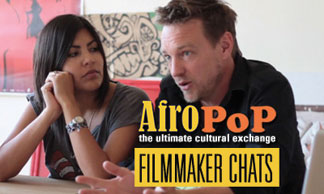
Controversial film on modern-day slavery in North Africa heads to public television to re-air on March 3
Submitted by Cheryl Duncan
BOSTON, MASS. —World Channel in association with National Black Programming Consortium (NBPC) presented World Channel Special Report: Behind Stolen on Tuesday, Feb. 26 and will re-air on Sunday, March 3 at 8 a.m. and 4 p.m. The two-hour special will include the documentary Stolen, followed by a panel discussion to explore the many complicated issues that have arisen from the independent film in which filmmakers Violeta Ayala and Daniel Fallshaw document what they believe to be modern-day slavery in the Western Sahara region of Africa. Originally scheduled to air on Feb. 5, the film’s broadcast was postponed to allow for the production of a special report and discussion segments that address the rising controversy generated by the film. Stolen is part of season five of the series AfroPoP: The Ultimate Cultural Exchange. AfroPoP is produced by NBPC and hosted this year by actress Gabourey Sidibe.
In Stolen, Ayala and Fallshaw head to a refugee camp in Western Sahara to document a U.N.-monitored family reunion between Fetim Sellami, a Sa-hrawi refugee, and the mother she had not seen since she was a child. At the reunion, Fetim and others discuss how Fetim was taken from her mother to work for white Saharawis living in a refugee camp run by the Polisario, the government ruling the Sahrawis; during this taping, claims arise that she and her family are enslaved.
Other film subjects also say they are enslaved and seek help to gain their freedom. Soon, what was intended to be a happy record of a family reunion becomes an exposé surrounding reported slavery in the camp, bringing the filmmakers under the scrutiny of the Polisario, the government of Morocco and others.
The film has many supporters, but it also has critics—from those who claim that slavery does not exist in Western Sahara to those who challenge the filmmakers’ methods. After the film was completed, Fetim withdrew her consent to be in it, and her daughter’s father also withdrew his approval for his minor daughter to appear.
The Polisario flew Fetim to the 2009 Sydney Film Festival to challenge Stolen and has campaigned against the film at film festivals. To date, Stolen has been screened in more than 80 film festivals around the world. This World Channel broadcast is its world television premiere.
Kicking off the program will be an indepth report that contextualizes the region and the complicated controversy surrounding the film by lead correspondent Phillip Martin, who has been covering human trafficking internationally since 2010 as senior investigative reporter with WGBH- FM.
After the film’s broadcast, Ayala and Fallshaw will be interviewed by award-winning WGBH News journalist Callie Crossley to discuss their transition from documentarians to advocates, the journalistic questions raised as a result of the film and what has happened since the film’s release. Experts on the Western Saharan region and modern-day slavery will then participate in a roundtable discussion about geopolitical issues in the area, including human rights. Both companion shows, produced by World Channel in association with NBPC, are designed to provide viewers with information and inspire dialogue in homes and communities across America.